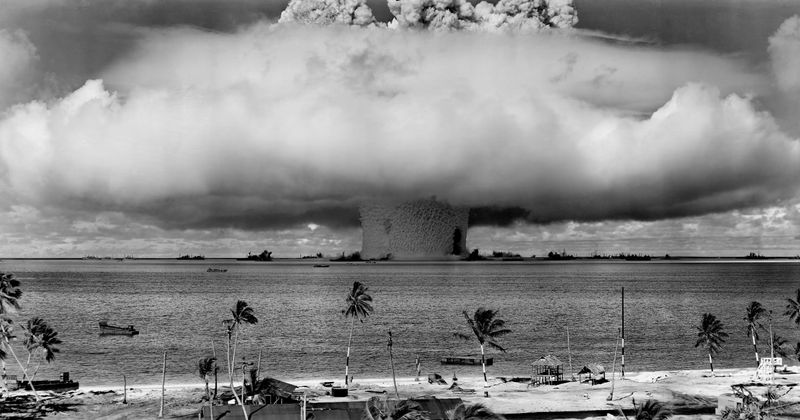Table of Contents
Progress Made in Cluster Munitions Stockpile Destruction
The recent news that three countries have successfully destroyed their stocks of cluster munitions is a significant step in the global effort to reject this widely banned weapon. Bulgaria, Slovakia, and South Africa have announced the completion of their long-term processes to eliminate their cluster munition stockpiles, collectively destroying over 9,500 cluster munitions and more than half a million submunitions. This achievement underscores the commitment of countries that have joined the Convention on Cluster Munitions to dismantling their stockpiles and opposing the use of these weapons. However, concerns remain about countries that have not banned cluster munitions and may continue to use or potentially use them in the future.
Convention on Cluster Munitions and Its Key Goals
The Convention on Cluster Munitions, adopted in 2008, comprehensively prohibits the use, production, and transfer of cluster munitions. It also mandates the destruction of stockpiles, clearance of cluster munition remnants, and assistance to victims of these weapons. Since its adoption, there have been no confirmed reports or allegations of new use, production, or transfers of cluster munitions by any state party. This is a testament to the effectiveness of the convention in curbing the proliferation and use of these indiscriminate weapons.
Highlights from the 11th Meeting of the Convention
The 11th meeting of the Convention on Cluster Munitions took place from September 11 to 14, 2023, in Geneva. Several significant developments were reported during the meeting:
- Bosnia and Herzegovina: The country announced the successful clearance of cluster munition remnants from its territory, covering an area of over 14 square kilometers. However, their landmine clearance work continues.
- Peru: Peru remains the last state party with cluster munition stocks left to destroy, and they have confirmed that they are on track to meet the deadline for stockpile destruction by April 1, 2024.
- Nigeria and South Sudan: These two countries, the latest to ratify the convention in 2023, expressed their firm support for the convention and their commitment to its implementation.
- Signatory countries: Six out of the 12 countries that have signed but not yet ratified the treaty participated in the conference. The Democratic Republic of the Congo, one of these signatories, announced its intention to ratify the convention by the end of 2023.
- Observer countries: Nine countries that have not signed the treaty attended the meeting as observers. Among them, Turkey stated that it has neither used, produced, imported, nor transferred cluster munitions since 2005 and has no intention of doing so in the future.
Concerns about Recent Use of Cluster Munitions
Despite the progress made by countries adhering to the Convention on Cluster Munitions, there have been alarming reports of the continued use of these weapons. The “Cluster Munition Monitor 2023” report, produced with the assistance of Human Rights Watch, revealed that there has been a significant increase in civilian casualties resulting from the use of cluster munitions since 2021. The report highlighted the use of cluster munitions in Ukraine, which has caused numerous civilian deaths and injuries.
While Russia has been repeatedly using cluster munitions in Ukraine since its invasion in 2022, causing civilian harm, Ukrainian forces have also been implicated in the use of cluster munitions. Additionally, the Myanmar military and Syrian government forces were reported to have used cluster munitions in 2022, leading to harm to civilians. None of these countries have signed or ratified the cluster munitions treaty.
US Transfer of Cluster Munitions to Ukraine Contradicts Norms
Of particular concern is the recent transfer of US cluster munitions to Ukraine. The New York Times reported that the Biden administration plans to send even more cluster munitions to Ukraine. This shipment violates the norms of the Convention on Cluster Munitions and disregards the lessons learned from past conflicts. The foreseeable harm to civilians caused by cluster munitions should be seriously weighed against any perceived military advantages.
United Nations Call for Universal Ban on Inhumane Weapons
United Nations Secretary-General António Guterres, in his “New Agenda for Peace,” has called on member states to strive for the universality of treaties banning inhumane and indiscriminate weapons, including the Convention on Cluster Munitions. It is crucial for countries that have not yet banned cluster munitions to heed this call and join the convention promptly.
The fight against cluster munitions is an ongoing battle to ensure the safety and protection of civilians around the world. The recent progress made in stockpile destruction is encouraging, but the challenges posed by countries still employing these weapons demand sustained international efforts and stricter adherence to the Convention on Cluster Munitions.

<< photo by Pixabay >>
The image is for illustrative purposes only and does not depict the actual situation.
You might want to read !
- Release or Revoke: The Urgent Call for Justice in Bangladesh
- Cracking Down on Liberties: Algeria’s Alarming Assault on Fundamental Freedoms
- Egypt’s Repression of Free Speech: The Urgent Call to Release Prominent Dissident on Trial
- Exploring the Growing Challenges of Cluster Munitions: New Use and Transfers
- South Sudan Joins Global Efforts in Banning Cluster Munitions
- “Examining Russia’s Controversial Use of Cluster Munitions in Ukraine”
- Rallying for Change: Global Climate Protests Demand a Fossil Fuel-Free Future
- Navigating the Stormy Seas: Unraveling the Future of the Global Ocean Treaty
- Why Affordable and Accessible Public Transport is Essential for Social and Climate Justice
- Kenya’s Urgent Need to Prohibit the Use of Highly Hazardous Pesticides